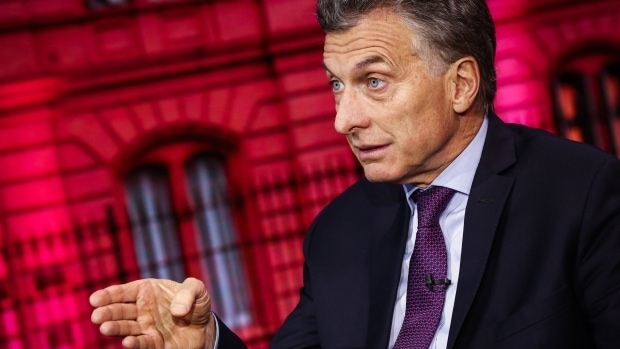
BUENOS AIRES – Argentina has asked the International Monetary Fund for financing to help stem a run from the Peso to the U.S. dollar that is sparking a surge in interest rates and threatening to derail the country’s economic recovery.
The sum requested is estimated between 25 and 30bn dollars, 500% Argentina’s IMF quota and could be disbursed in two forms, a flexible credit line or a precautionary credit line.
“This will allow us to face the new global scenario and avoid a crisis like the ones we have faced before in our history,” President Mauricio Macri said in a televised address on Tuesday.
The president didn’t state how much money was being requested but sources said that apparently officials are seeking a credit line worth up to US$ 30 billion. Treasury Minister Nicolas Dujovne is leading a delegation to Washington for talks with the Fund, the ministry said. The IMF confirmed talks in a statement.
The speech was the first time that Macri spoke to the country after the central bank abruptly raised the benchmark’s interest rate three times in ten days to 40%, the highest among major economies. The currency has plunged more than 18% this year, dragging down assets from bonds to stocks. The peso pared earlier losses and traded at 22.75 pesos to the dollar in early afternoon trade from 21.94 on Monday.

The decision to accept an IMF credit line is the latest twist in the sometimes fraught relationship between the fund and Argentina. The IMF lent to Argentina before the country defaulted on its debts in 2001.
The IMF was heavily criticized in Argentina for failing to forestall the debt crisis.
Relations with the fund have warmed in recent years. Argentina was censured by the IMF in 2013 for failing to disclose economic data, but the fund removed the censure declaration in 2016 after the government improved its transparency.
“We’re looking for preventive financing for Argentina to bring stability to the market,” Nicolas Dujovne, Argentina’s Treasury minister told reporters in Buenos Aires. “We’ve begun talks with the IMF to have a preventive line of credit, bearing in mind that the IMF has given express support to our gradual program.”
The IMF offers the flexible credit line as a precautionary tool for countries that want to reassure markets they are following economic policies approved by the Washington-based fund. Governments can draw on the lines at any time. To qualify, countries must show they have strong economic fundamentals and are implementing policies vetted by the IMF.
Colombia, Mexico and Poland are the only nations to have signed up for the flexible credit line. None of them have drawn on the lines, and Poland exited the arrangement last year.
Earlier on Tuesday, Argentina’s peso traded at a record low tracking a rout in global emerging markets. The central bank raised rates on Friday for the third time in eight days in an unprecedented move that underscored challenges faced by President Macri as he attempts to rein in inflation and government spending.
Alberto Ramos, the head of Latin America research at Goldman Sachs Group Inc. in New York, said Argentina’s request for financing help is a positive development as it increases the central bank intervention firepower and, therefore, the ability to anchor the currency.
In Washington IMF Managing Director Christine Lagarde said ”Argentina is a valued member of the International Monetary Fund. I very much welcome President Macri’s statement today and look forward to our continuing partnership with Argentina. Discussions have been initiated on how we can work together to strengthen the Argentine economy and these will be pursued in short order.”
However the political side of the situation will face a decisive challenge this Wednesday in Congress where lawmakers agreed to discuss a capital markets bill, sponsored by the government, and at midday an opposition initiative to freeze utility rates to their November level, with any future increases in line with salary levels. Government and opposition are willing to discuss the first bill, but it is not clear what can happen with the freeze bill, since it will depend if there is a sufficient quorum.
Anyhow if approved president Macri has anticipated he will veto the freeze bill, which both sides want to avoid to prevent a further deterioration of Congress and weakening of possible working alliances to approve legislation. Government officials have warned that the freeze bill could add another US$ 10bn to the budget deficit.–MercoPress



